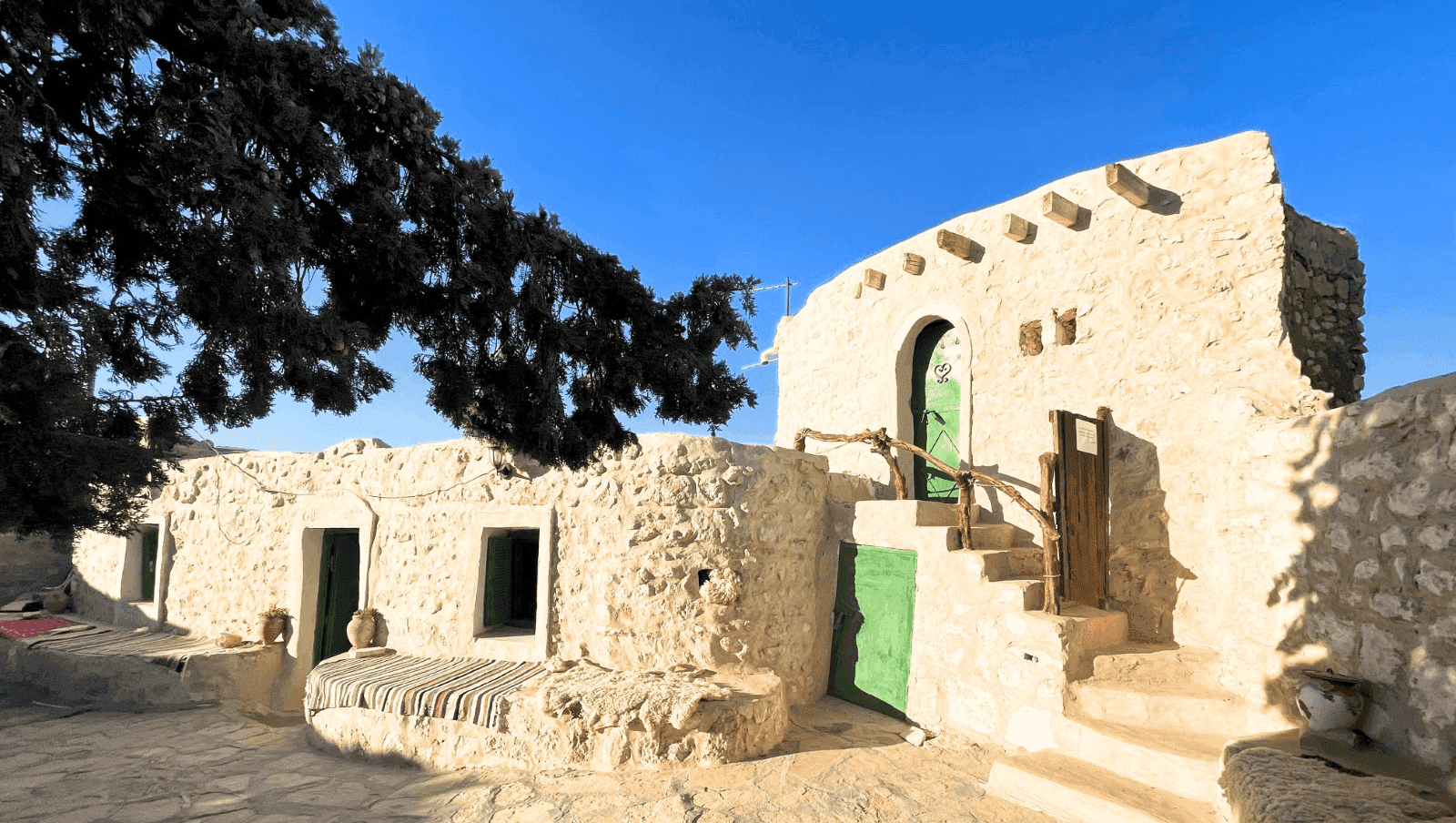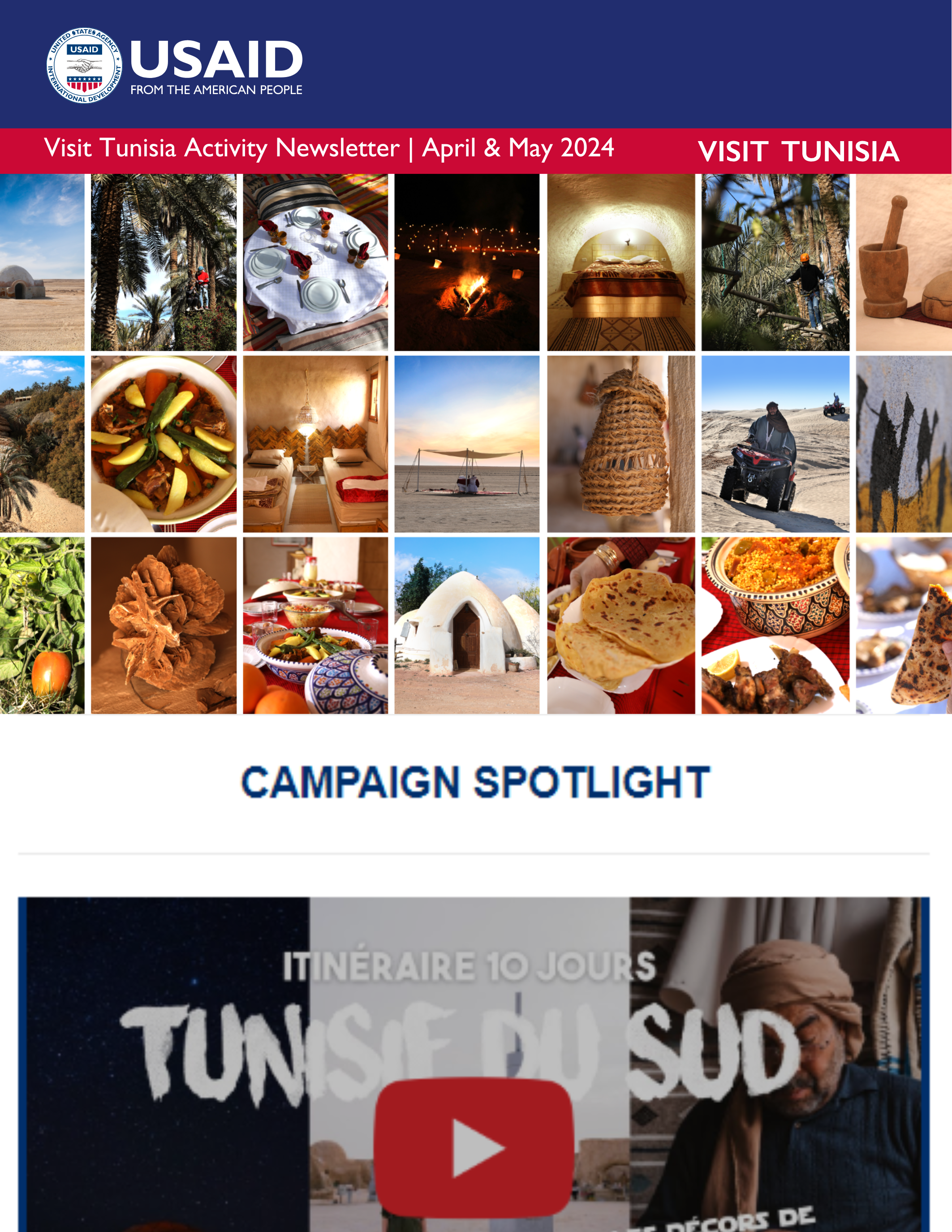Tunisia's Southern regions, notably Tozeur, Tataouine, and Douz/Kebili, have become hubs of great sustainable tourism development, integrating eco-friendly practices while preserving both cultural and natural heritage of the region. In this arid but breathtaking part of the country, a wave of Small and Medium-sized Enterprises (SMEs) has emerged, crafting unique and participatory experiences for Tunisian visitors as well as international travelers. Through its programming, USAID Visit Tunisia is proud to support some of these rising experiences and contribute to reaching sustainable livelihoods. This article tackles sustainable tourism experiences that preserve the natural, historical and culinary heritage and suggests a few USAID–supported experiences to explore.
Sustainable Tourism: A Powerful Force for Positive Change
USAID Visit Tunisia Activity aligns with the World Tourism Organization's definition of sustainable tourism and sees it as “tourism that takes full account of its current and future economic, social and environmental impacts, addressing the needs of visitors, the industry, the environment and host communities”. Emphasizing the significance of sustainable tourism in creating jobs, preserving local culture, and fostering economic growth, our project aligns with international frameworks such as the Sustainable Development Goals (SDGs).
By ensuring minimum impact on communities and ecosystems and maximizing the preservation of both natural and cultural resources for future generations, sustainable tourism products and experiences aim to create a positive and lasting impact on both travelers and the communities they visit.
USAID Visit Tunisia is dedicated to supporting businesses in Tunisia in creating meaningful tourism experiences that incorporate responsible practices, environmental conservation, and socio-economic development, while ensuring the well-being of communities, and the preservation of natural resources. Visit Tunisia presents you a few suggestions for your next visit in Southern Tunisia particularly in the governorates of Gabes, and Tataouine.
Unique Eco-Friendly Accommodations on the Rise
One notable example of the development of sustainable tourism is the rise of eco-accommodations, where ancestral architecture meets sustainability. Accommodations such as Domaine Oued El Khil, and Au Trait d'Union Tijma provide a comfortable yet eco-conscious stay. Guests can bask in the splendor of the surroundings, all the while knowing their stay has minimal impact on the environment.
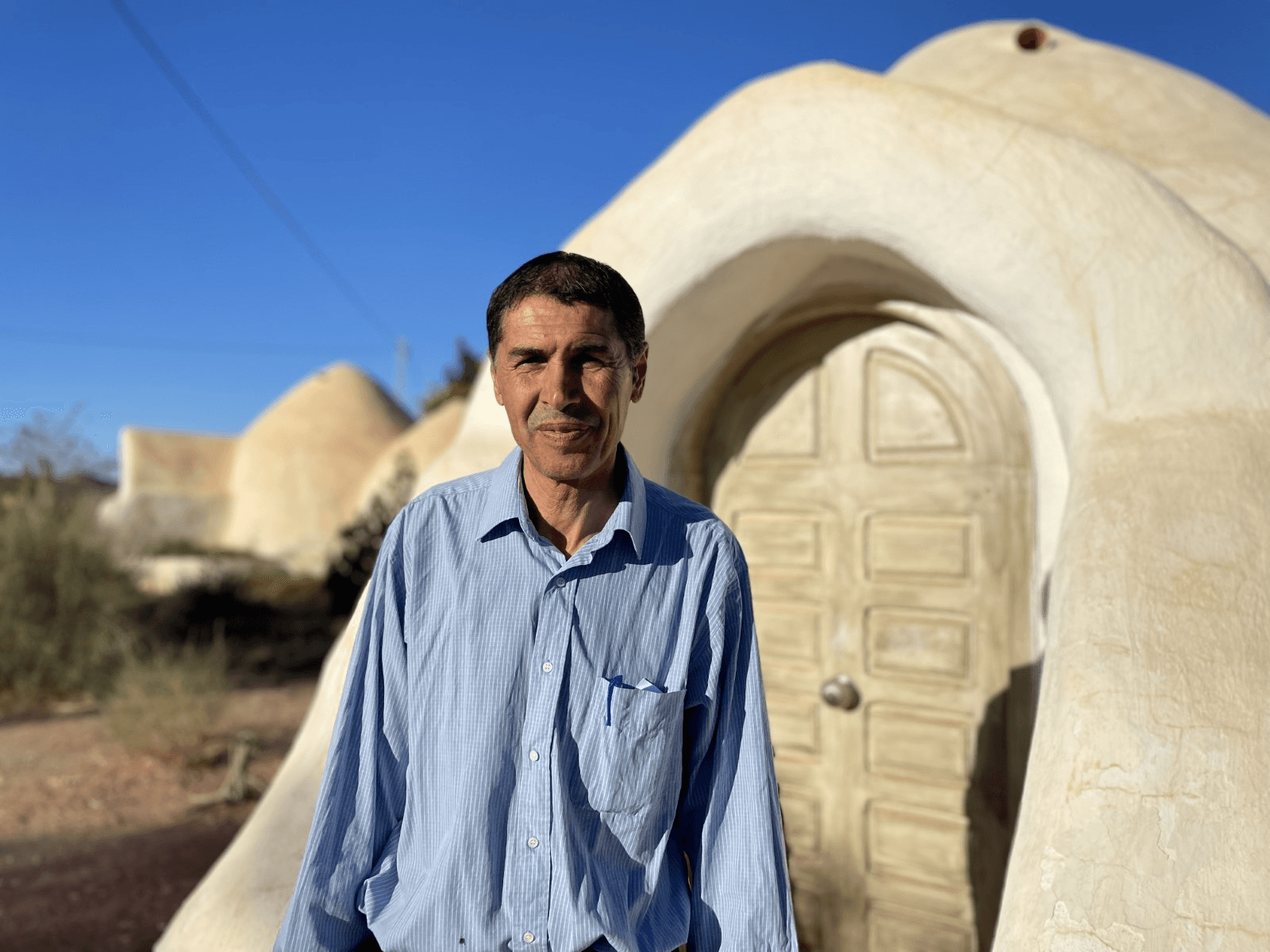

Snapshots of Radhouane Tiss, owner of Domaine Oued El Khil and one of the eco-friendly domes. Photos ©Rim Hajri/USAID November 2023
“In a gentle valley the Domaine Oued El Khil is a hotel based on the principles of permaculture and Persian beehive architecture constructed by Radhouane Tiss, a retired teacher. In Radhouane’s fecund gardens are peppers, melons, purple Moroccan basil, aloes and sage, planted to nourish and shade each other. Hummingbird hawk moths, doves, shrikes and the praying mantis which joined us at dinner attest to his philosophy. The garden supplies the table, the beehive rooms are made of local clay and no chemicals are used anywhere. The result is tranquility and biodiversity. When twilight falls, peace and the scent of jasmine rise like prayers.” — wrote Horatio Claire at the Financial Times’ article ‘High and dry: exploring Tunisia’s Dahar mountains’ published on November 25, 2023. (Read the full article here)
Domaine Oued El Khil promises its visitors the experience of sustainable living amid Tunisia’s arid South. For nature-loving individuals who want an immersive, ecologically friendly, farm-style experience, this guest house shows visitors firsthand the potential in sustainable community building. Unlike more urban accommodation options, it provides an unmatched sense of peace and hospitality, coupled with a core focus on supporting our environment.
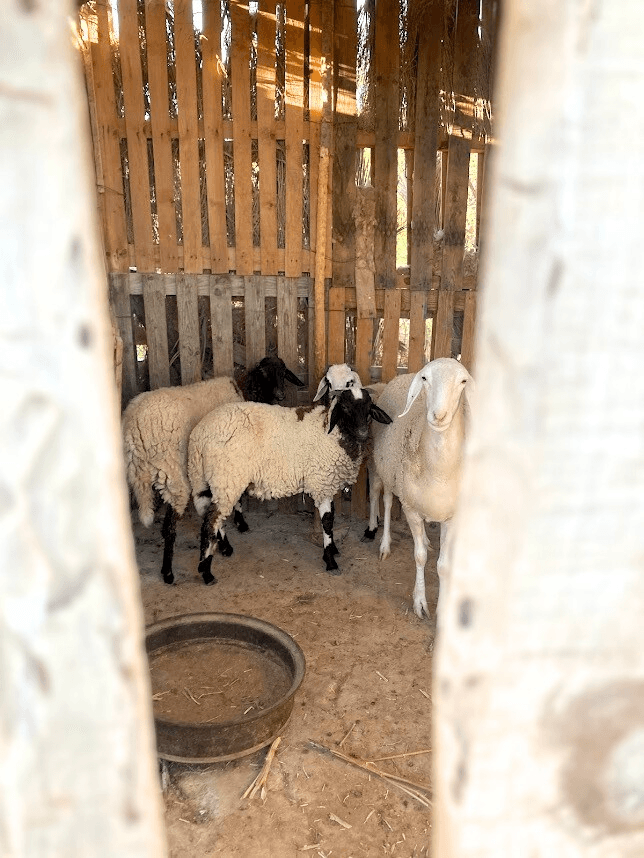
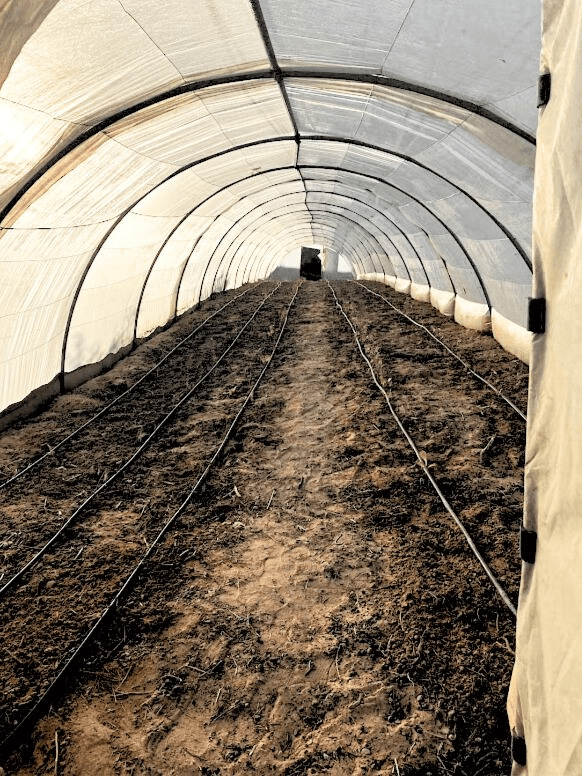
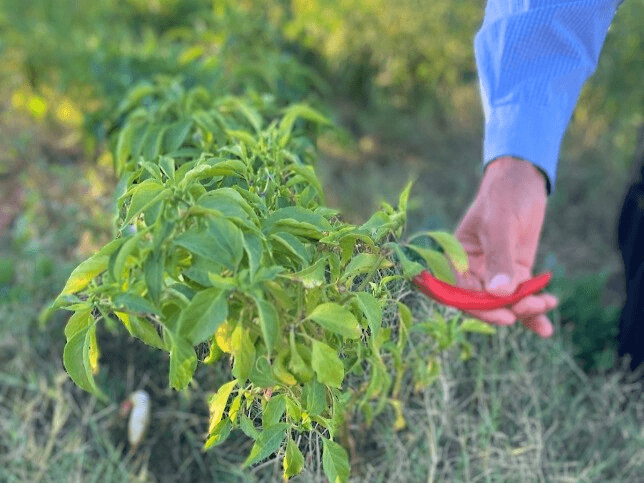
Domaine Oued El Khil permaculture farm. Photos ©Arlene Reiniger/Dorey Butter
Au Trait d'Union Tijma is a 600-year-old troglodyte guest house in the small mountain village of Tijma. This unique accommodation experience invites guests into present-day local culture in an authentic rural setting where Amazigh families still live in the underground dwellings neighboring ours. Each room reveals how their historically significant structure complements the surrounding environment, being naturally lit and temperature-controlled from the centuries-old clay architecture.
“I stayed at Au Trait d’Union, an underground hotel at Tijma. A roof of sky rests above the courtyard like a living artwork. Passages and bedrooms lead off like badger setts. Room temperature is between 18 and 21 degrees, ideal in summer and winter. When the olive wood outer door is shut you feel like a hobbit, enfolded in the womb of the hill. At sunrise birdsong trickles into the soft sounds of the household waking and the air is sweet with the clean scent of cool earth.” — added Horatio Claire in his article (see above).

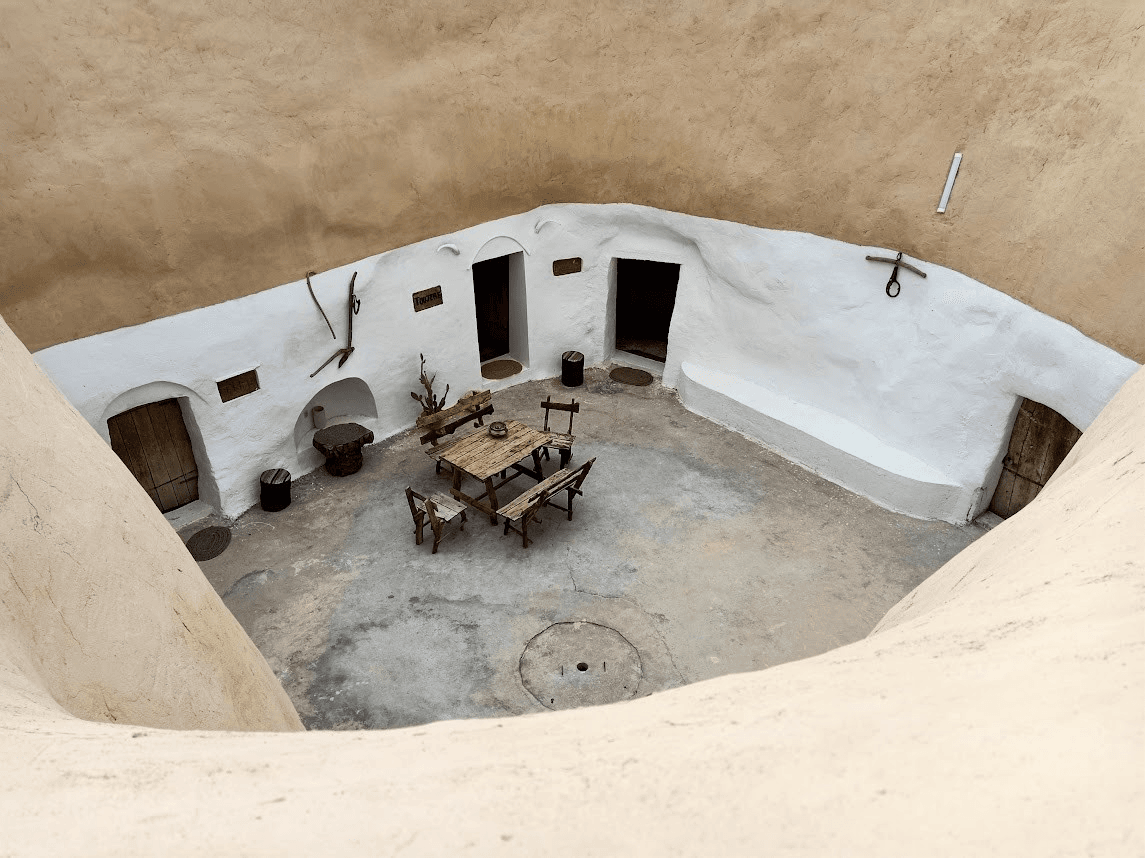

Au trait d’Union Tijma and its surroundings. Photos ©Rim Hajri
Additionally, the Southern regions have seen flourishing Amazigh-based tourism experiences. Local initiatives like ‘Café ben Jemâa’ or the ‘Musée Berbère’ in Tamazret invite visitors to immerse themselves in carefully crafted experiences through storytelling, allowing tourists to engage directly with the rich Amazigh heritage of the region. These initiatives not only provide authentic experiences but also directly contribute to the economic empowerment of the local Amazigh community.
“Mongi’s engrossing museum of Amazigh craft and culture is housed in his troglodyte home in Tamazret, our next stop. Granny was right: modernity’s inequalities, poor education and thin opportunity now render Amazigh women one of the Maghreb’s most vulnerable groups. The projects I visited, women-owned cafés, craft workshops, textile and culinary collectives, seek to offer support.” — Horatio Claire, Financial Times.
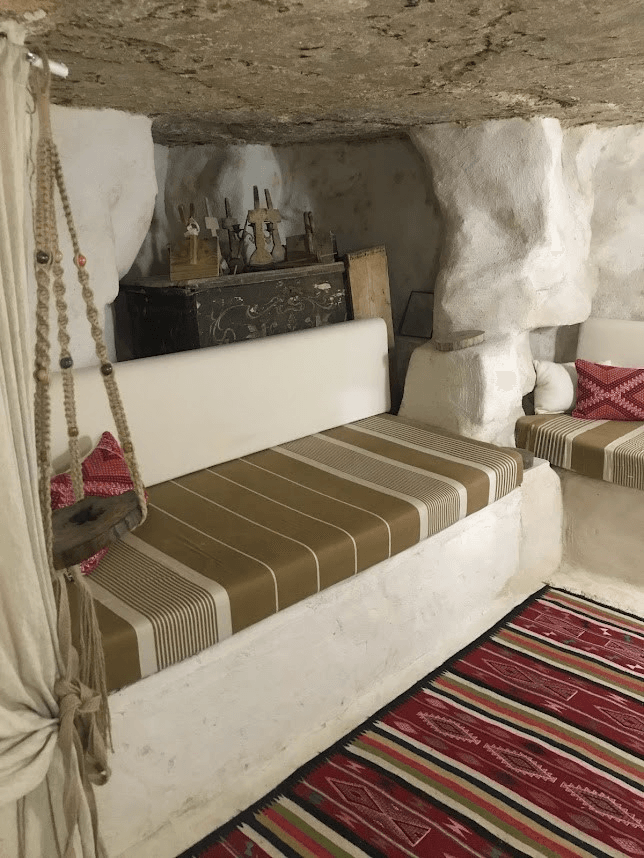
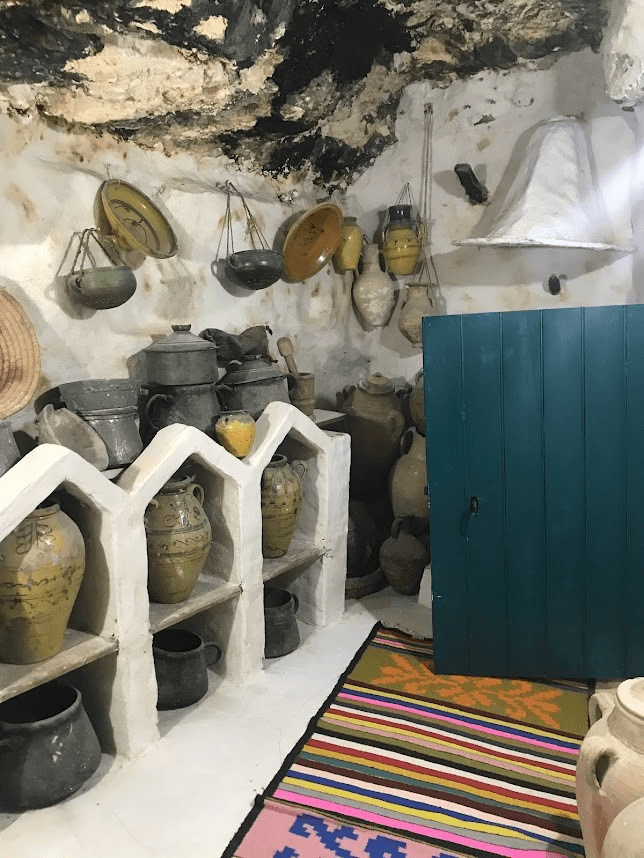
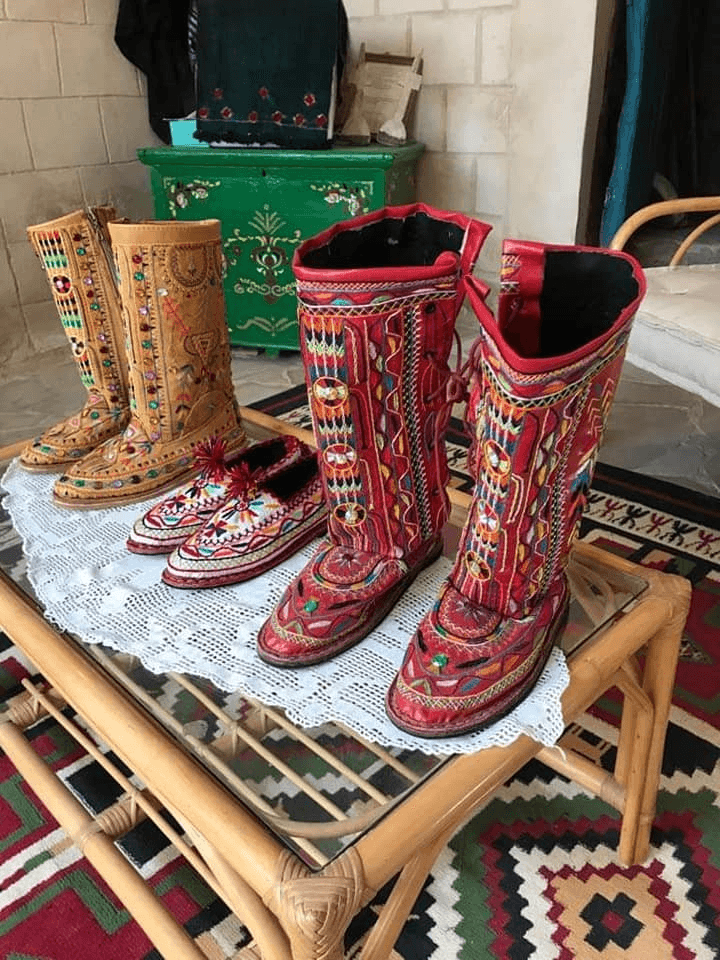
Photos ©Musée Berbère
For cultural enthusiasts looking to discover Amazigh heritage, Musée Bérbère is a captivating museum in the heart of Tamezret with a collection of crafted pottery, traditional clothing, and a curated selection of traditionally inspired items. What sets it apart is its embodiment of founder Mongi Bouras' deep connection to Amazigh ancestry, evident through his eye-opening presentation of his people’s intriguing customs and clever techniques.
Just a few steps higher lays Café Ben Jemâa, a 5th generation café shop that was restored in 1932. Cafe Ben Jemaa is known for sharing the authentic Amazigh heritage through storytelling, local dishes and delights and an Amazigh alphabet workshop especially crafted for visitors keen to learn more about the indigenous Amazigh of North Africa.
“At the top of Tamazret in a small airy courtyard is Café Ben Jemaa, a lighthouse of hospitality since1936, now overlooking the bones of its village. The laughing landlady, Kaouther, is the latest in the line of shrewd Amazigh chikha. Community differences were settled in her café. Kaouther taught me to make karabiz, a succulent stew of pasta, spices, chickpeas and sheep’s stomach.” — Horatio Claire.
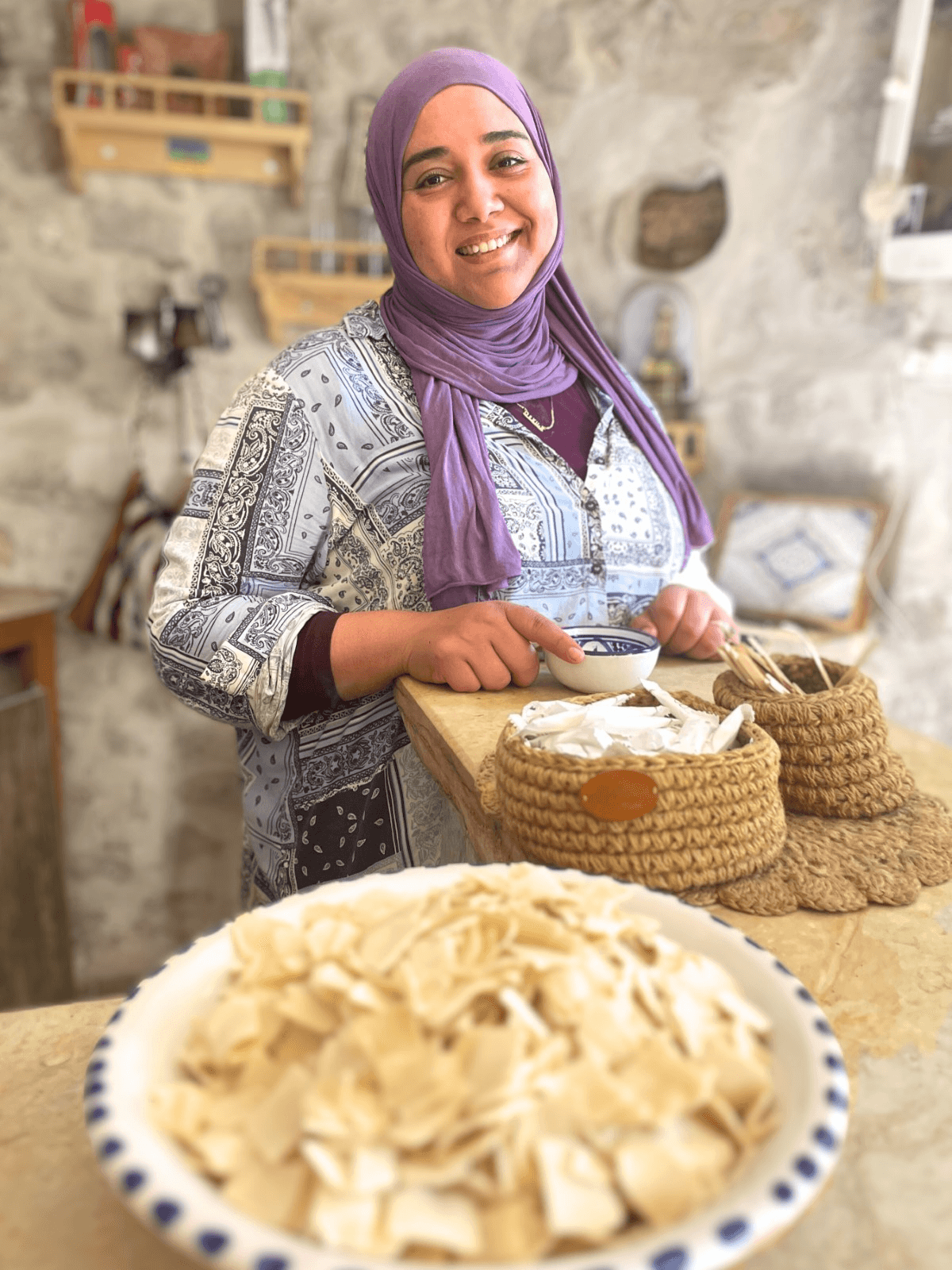
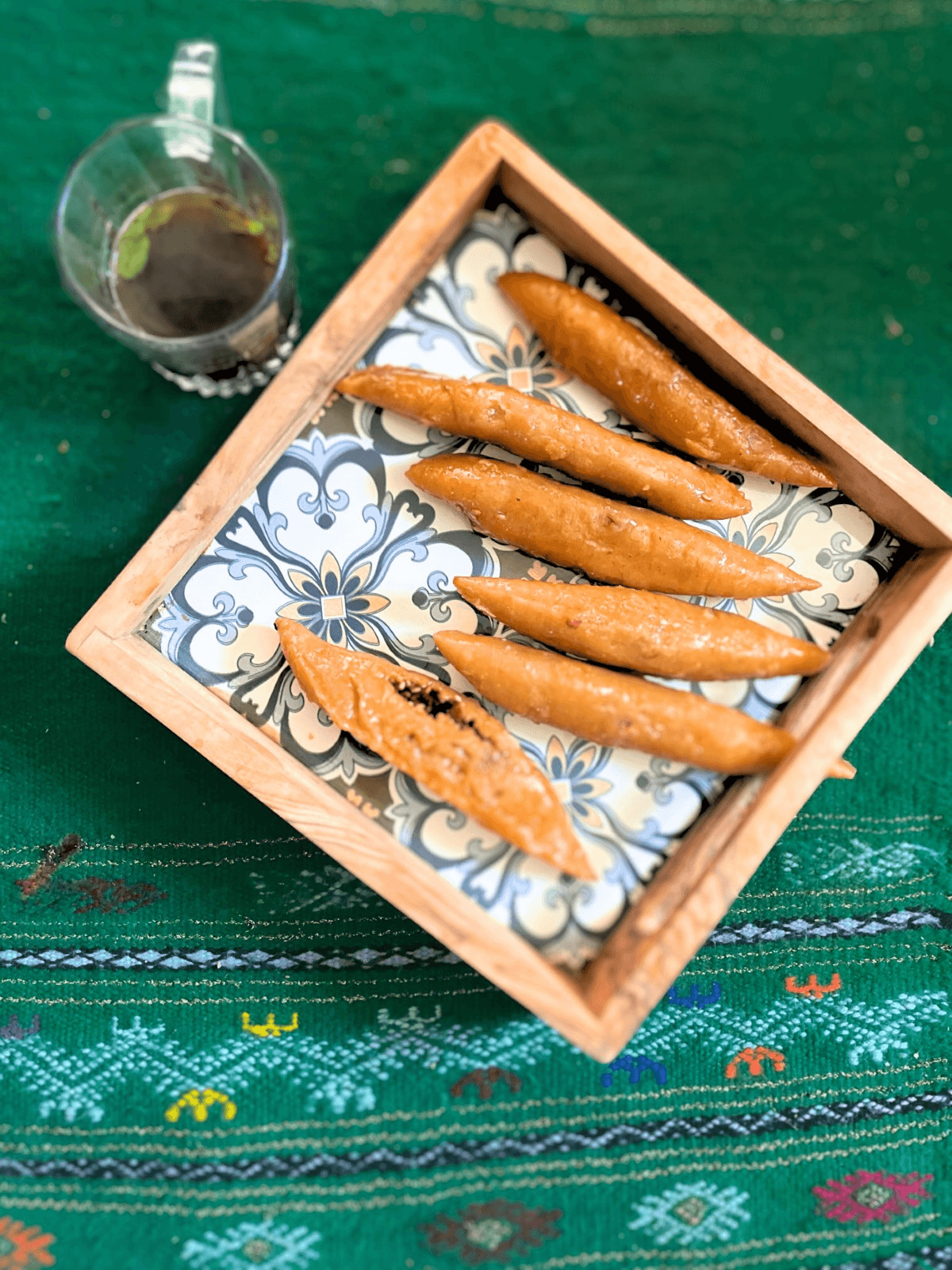
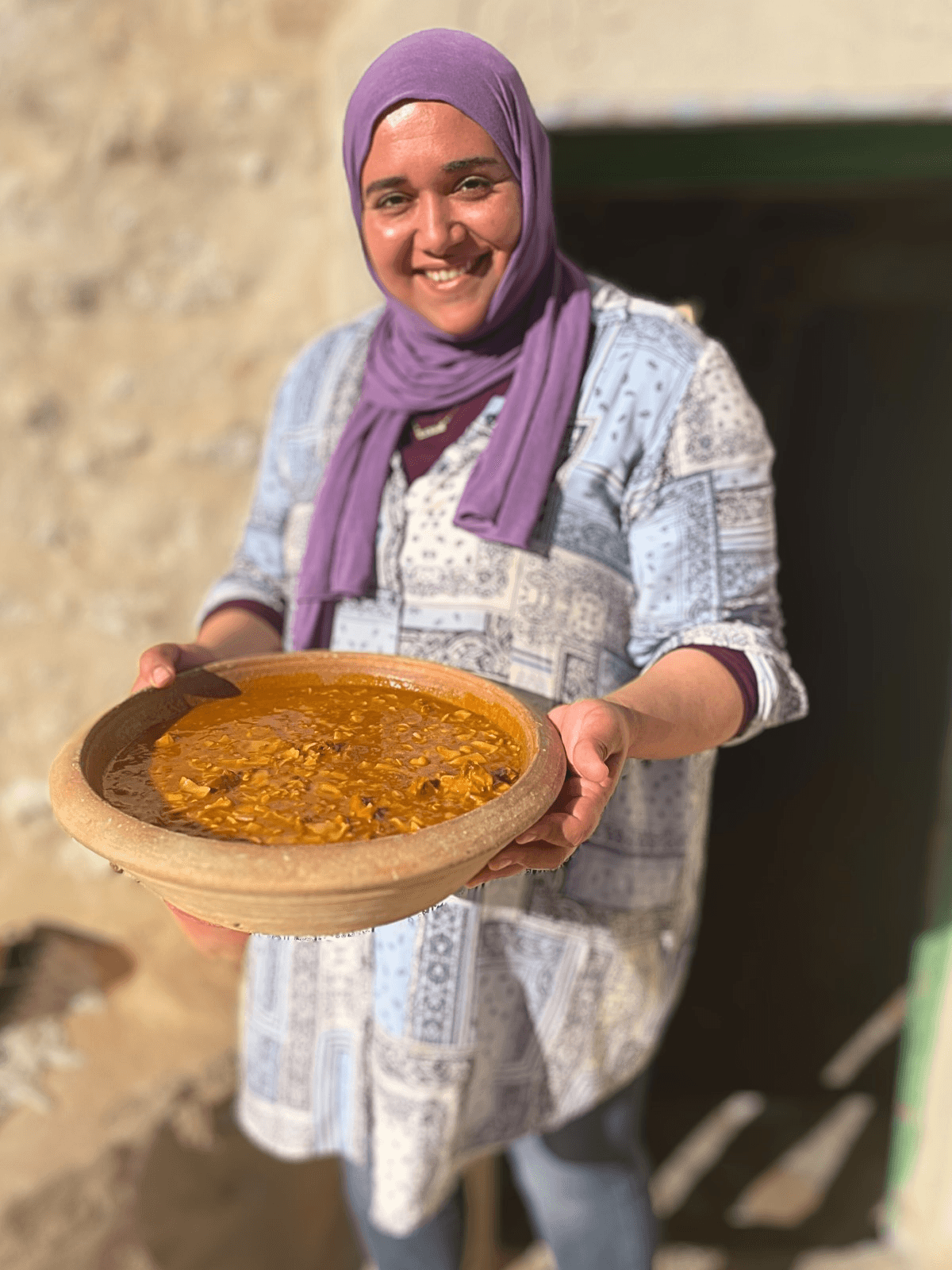
Photos ©Rim Hajri/USAID November 2023
Sustainable Gastronomy Tourism on the Rise
Moreover, the South has embraced sustainable gastronomy. Restaurants, cafes and guest houses in the regions such as Dar El Ferdaous and Dar Jadi specialize in organic, locally sourced delicacies, offering a tantalizing journey for the taste buds while promoting sustainable agricultural practices such as olive collection.
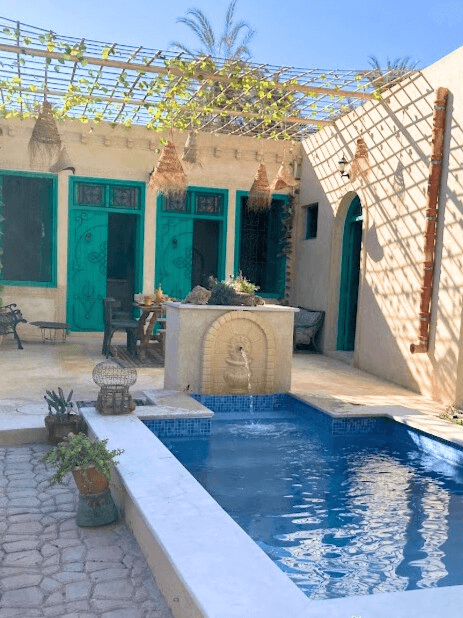
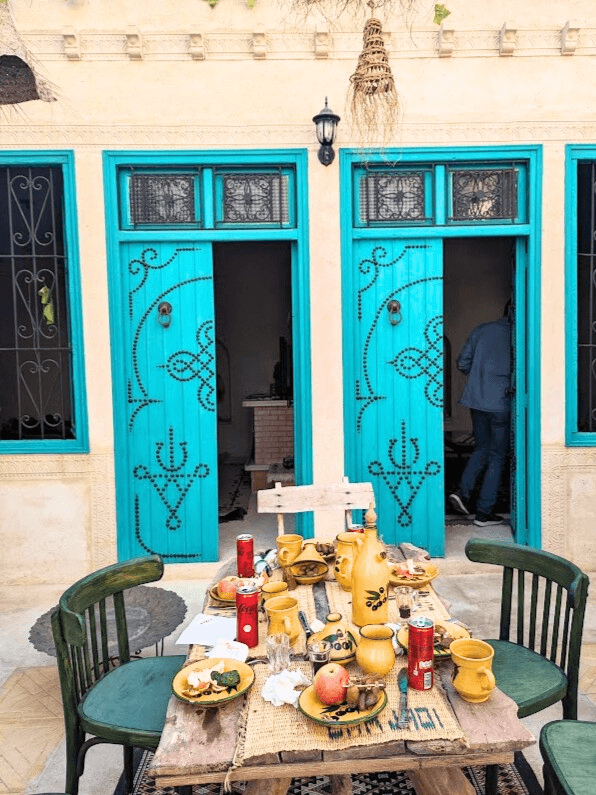
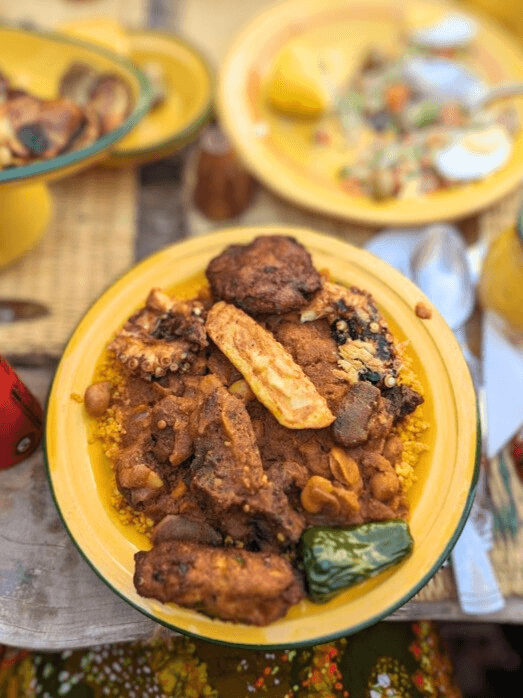
Photos ©Arlene Reiniger/M.E. Francis/Rim Hajri/USAID November 2023
Dar Jadi is a unique and immersive guest house and events space that offers a nostalgic journey into the heart of 1950s Gabes, meticulously restored to honor the region's cultural heritage. Designed for travelers seeking an authentic connection to the past, Dar Jadi provides a haven for those who appreciate original architecture, antique furnishings, and traditional décor, all while enjoying modern comforts hidden within.
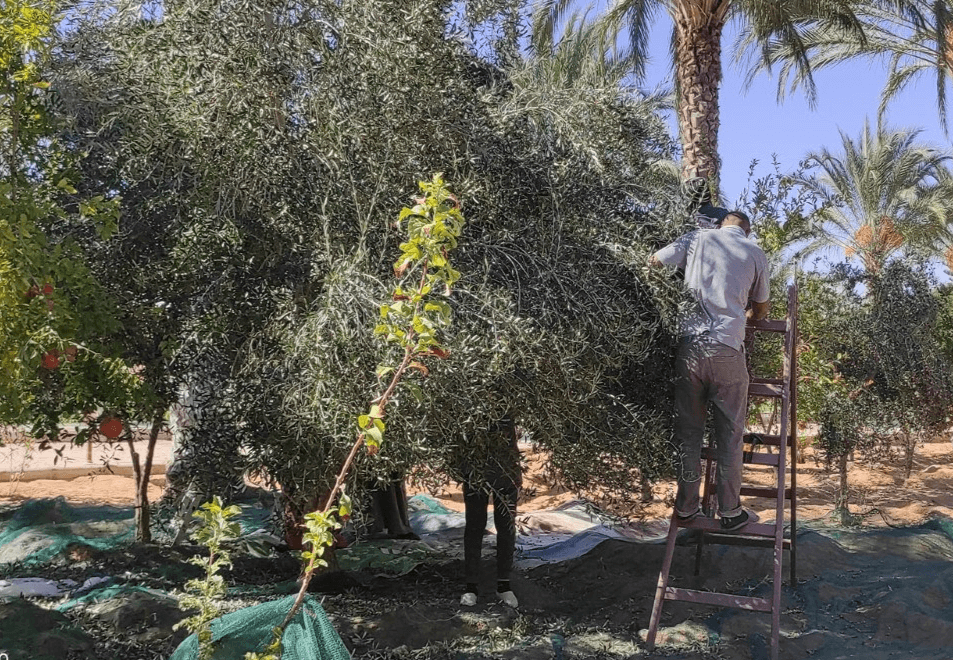
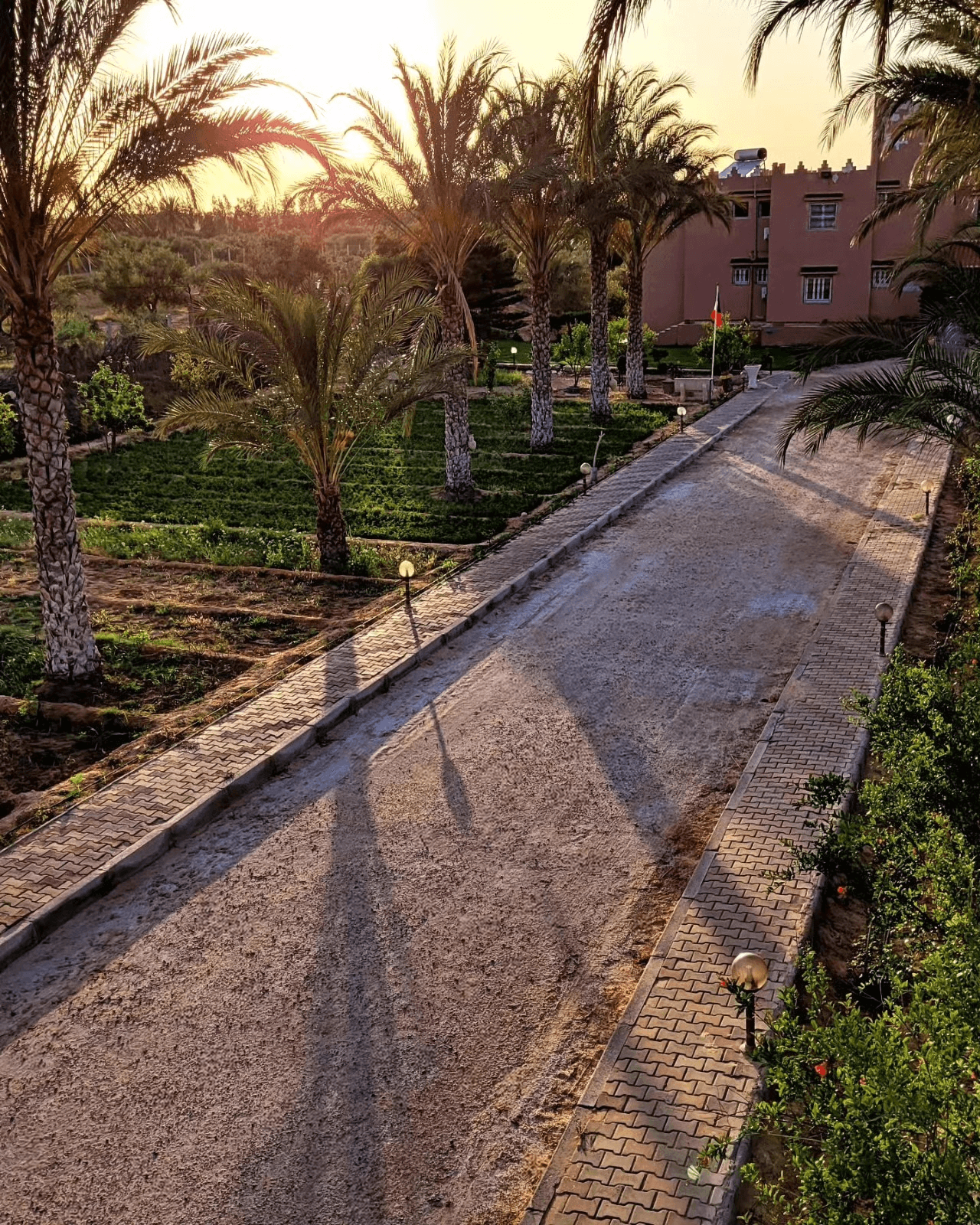
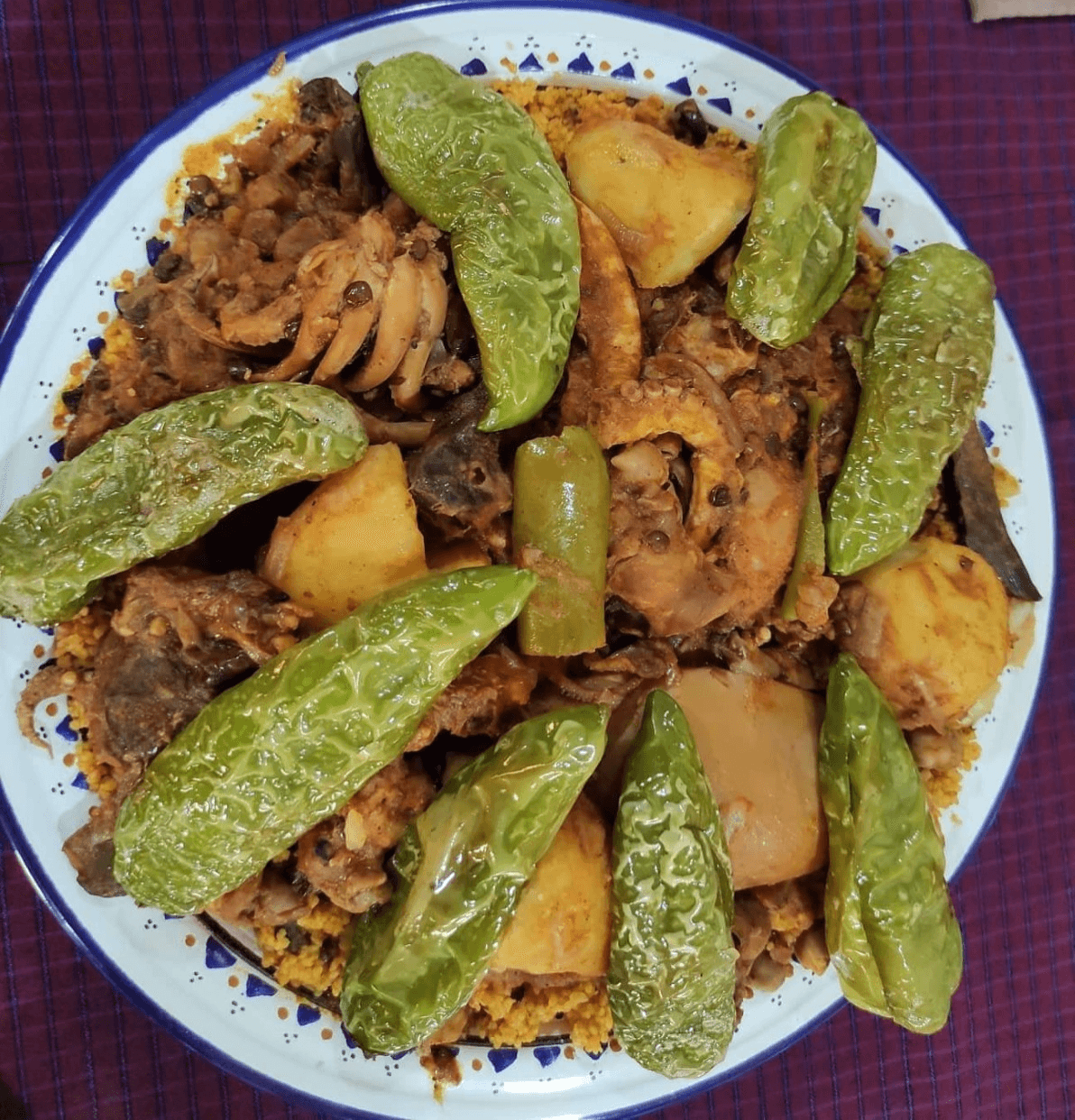
Photos ©Dar El Ferdaous
Dar El Ferdaous is a one-of-a-kind cultural and gastronomic haven in Gabes — seamlessly blends Tunisian traditions with French artistry, providing guests with the unique opportunity to immerse themselves in their family’s culture. Nestled among olive trees, Dar El Ferdaous’s serene surroundings, rich history, and flavorful cuisine create an unforgettable escape.
Southern Regions More Accessible from Europe (Paris)
Exploring the South of Tunisia just became more accessible and easier to international travelers who transit through/depart from Paris. Since October 30, visitors can book their direct flight from Paris-Orly to Tozeur-Nefta airport operated by Transavia, the low-cost subsidiary airline of the Air France / KLM group.
Following USAID Visit Tunisia’s support to Tunisia’s Airport Authority (OACA) and the Tunisian Tourism Board (ONTT) to launch this new air route and improve air connectivity of Tozeur, Kebili, Sidi Bouzid and the southwest region, the inaugural flight on October 30 was a huge success with 167 passengers – which represents 90% of the aircraft fill rate.
Check the video shared by Discover Tunisia about the inaugural flight and the welcome ceremony on October 30, 2023.
By choosing Southern regions and supporting these SMEs, travelers are not only treated to an unforgettable adventure but also become active participants in the conservation of Tunisia's natural and cultural wealth. It's a chance to immerse yourself in the desert's mystique and the Berber and Amazigh cultures, savor the local flavors and make a positive impact on the communities and businesses you encounter. Join our efforts to contribute to sustainable tourism development in Tunisia's Southern regions and beyond! USAID Visit Tunisia is preparing a marketing campaign promoting several other tourism experiences. Stay tuned for more suggestions for your visit to the South!
